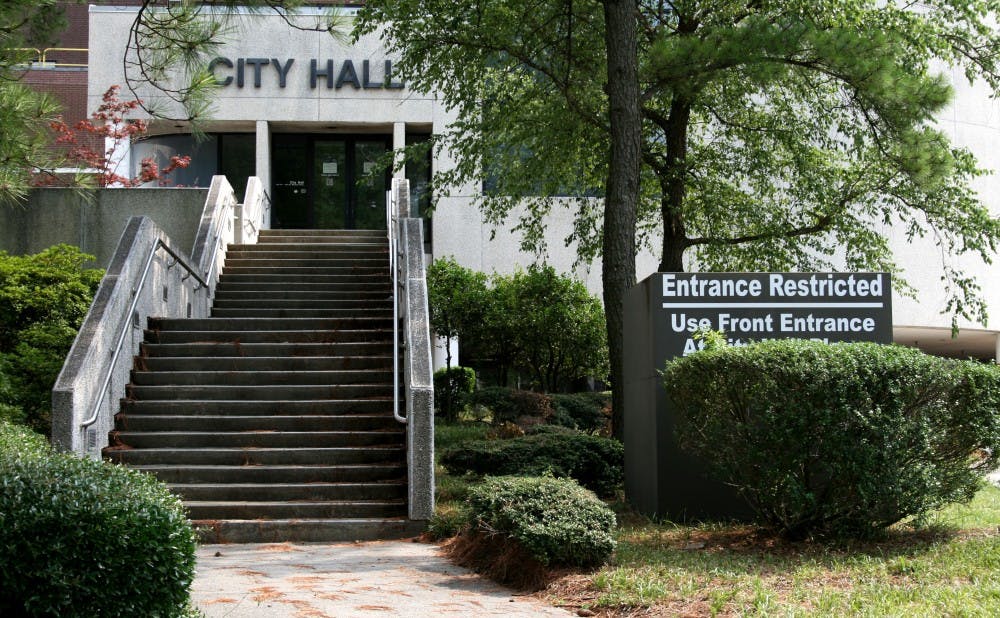Amid national conversations surrounding racial profiling, Durham City Council opened discussion on the prevalence of the issue locally at their meeting Thursday.
Law enforcement officials, Durham residents and advocacy groups gathered Thursday before City Council to discuss the racial profiling and misconduct in Durham’s police department.
Black males account for 17.4 percent of Durham’s population, but they make up more than 65 percent of the population stopped and searched by police, according to a report by the Southern Coalition for Social Justice. And a black motorist is more than 100 percent more likely to be asked for consent to search, even though they are no more likely to be found with contraband than a white motorist in the same situation.
“This is an issue I take incredibly seriously,” Durham Mayor Bill Bell said at the Council meeting, which was standing room only. “It’s not going to happen overnight, and its going to take a lot of frank conversation, but my colleagues and I are committed to finding a solution.”
Last fall, Bell asked the city’s Human Relations Commission to investigate allegations of discriminatory policing by the Durham department. After seven months of hearings, the 14-member group issued its final report confirming “the existence of racial profiling” in the department’s practices.
The commission issued 34 policy recommendations designed to end racial profiling in Durham—including mandatory use of written consent-to-search forms for all consent-based searches and the designation of marijuana enforcement as the city’s lowest law enforcement.
At the Council meeting, City Manager Tom Bonfield introduced his response to the commission’s finding—a 131-page report released Monday that advocacy groups, including NAACP, SCSJ and Durham Fostering Alternative Drug Enforcement, say is a step in the right direction, but needs to go further.
“Our review tells us that unexplained racial disparities do exist,” Bonfield said. “The public trust is an awesome responsibility, and we’re determined to do what we can as a department to earn that trust.”
But advocacy groups like Durham FADE still say Bonfield’s recommendations won’t end the public frustration with police. The group especially criticized Bonfield for not endorsing a written consent-to-search policy—which FADE said would reduce the dramatic racial disparities seen in vehicle searches.
“We have a huge problem here in Durham,” said Umar Muhammed, who was one of the 20 Durham residents to address the Council. “The police department is a threat, and that’s how my peers and the community look at it. I came here today to ask you—the Mayor and the council members—to come to the table and discuss this, to find a solution.”
Nancy Wilson, another Durham resident, said the mistreatment of black men by police is a national issue, noting that some studies have estimated that a black man is killed by police every 28 hours.
“We can’t expect our black men to lead families when they are being broken and oppressed on a daily basis by the people that are supposed to protect them,” Wilson said. “These men and women need to tell their stories, and be a part of the solution.”
Get The Chronicle straight to your inbox
Signup for our weekly newsletter. Cancel at any time.

